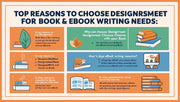Mobile application design is crucial in creating engaging and user-friendly experiences for smartphone and tablet users. With millions of apps available, a well-designed mobile application can set your product apart and drive user retention. Here are some best practices to consider when designing mobile applications.
First, prioritize user-centric design. Understanding your target audience is essential. Conduct user research to gather insights into their preferences, behaviors, and pain points. This information will guide your design choices, ensuring that the app meets user needs and expectations. Usability testing during the design process can also provide valuable feedback, helping to refine the user experience.
Next, focus on simplicity and clarity. Mobile screens have limited space, so it’s vital to present information in a clear and concise manner. Use intuitive navigation and minimize the number of actions required to complete tasks. A clutter-free interface enhances usability, making it easier for users to find what they need and accomplish their goals.
Additionally, ensure consistency across the app. Consistent design elements, such as colors, fonts, and button styles, help users navigate more easily and build familiarity with the app. This consistency reinforces brand identity and creates a cohesive experience. Establishing a design system or style guide can help maintain this consistency throughout the app development process.
Moreover, optimize for performance and speed. Users expect apps to load quickly and respond promptly to interactions. Optimize images, reduce the size of assets, and streamline code to improve performance. Regularly test the app on various devices to ensure it functions smoothly across different platforms and screen sizes.
In conclusion, effective mobile application design involves prioritizing user-centric approaches, simplicity, consistency, and performance optimization. By adhering to these best practices, designers can create mobile apps that engage users and provide meaningful experiences.




